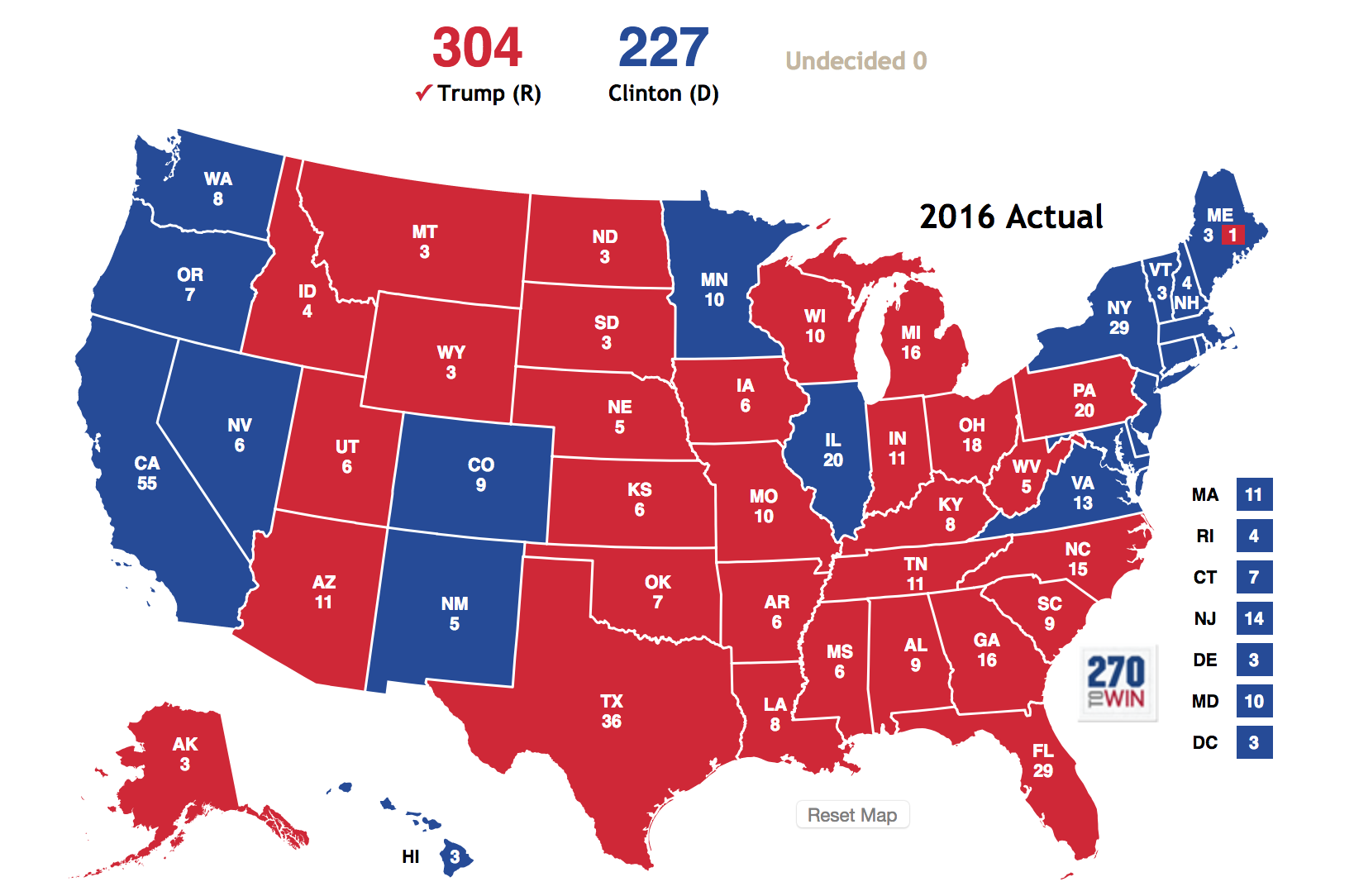Besides the obvious fact that Republicans won 'wrong-winner' victories in 2000 and 2016, one of the main reasons why GOP leaders believe the Electoral College generally helps their candidates is their supposed advantage in small states. That bit of conventional wisdom is not confined just to Republicans. Here's a recent statement from a respected neutral source, the fact-checking website Politifact:
Two factors explain why today’s political environment, if anything, gives Republican states a leg up in the Electoral College. First, smaller states get a disproportionately large impact in the Electoral College, because each state (plus the District of Columbia) gets a guaranteed two electoral votes before the rest of the electoral votes are allotted based on House seats (and thus, indirectly, on population). While there are some smaller blue states, the smallest states are disproportionately Republican-leaning.
Looking at any of the familiar blue-red Electoral College maps from recent elections, it's easy to see why such a perception took hold:
Huge red swaths on the map represent vast, sparsely populated, solidly Republican states—Alaska, Idaho, Montana, Wyoming, the Dakotas. Blue small states, in contrast, tend to be small in area as well as in population—Hawaii, Vermont, Rhode Island, Delaware, the District of Columbia. They're easy to overlook, so glancing at a map may result in an optical illusion rather than a reliable answer. Instead, let's examine actual numbers from elections over the last three decades:
In four of the last seven elections, the Democratic candidate won more small-state electoral votes than the Republican! Over the same period, the median number of small-state votes won by the two parties is exactly the same—30 each. In the two most recent elections, votes from small states split almost evenly, as they gave a one-vote margin to Obama in 2012 and a two-vote edge to Trump in 2016. In short, the idea that small states reliably give Republicans a leg up in the Electoral College is a myth.
Jack Nagel is Professor Emeritus of Political Science at the University of Pennsylvania. This is Part II of his series debunking the myths that the Electoral College always benefits Republicans and that the national popular vote would necessarily benefit Democrats. Read Part I here.


